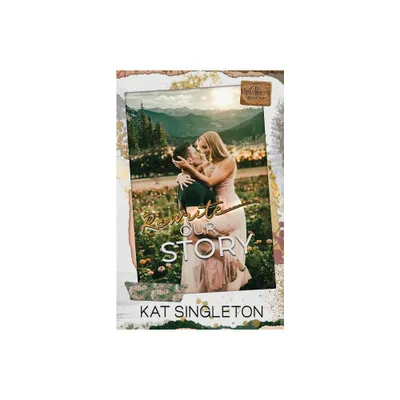Home
Finishing Our Story: Preparing for the End of Life
Loading Inventory...
Barnes and Noble
Finishing Our Story: Preparing for the End of Life
Current price: $19.99


Barnes and Noble
Finishing Our Story: Preparing for the End of Life
Current price: $19.99
Loading Inventory...
Size: Paperback
*Product Information may vary - to confirm product availability, pricing, and additional information please contact Barnes and Noble
Death is the destiny we all share, and this will not change. Yet the way we die, which had remained the same for many generations, has changed drastically in a relatively short time for those in developed countries with access to healthcare. For generations, if people were lucky enough to reach old age, not having died in infancy or childhood, in childbirth, in war, or by accident, they would take to bed, surrounded by loved ones who cared for them, and fade into death. Most likely, they would have seen their parents and grandparents die the same way, and so this manner of dying would be familiar: it was part of the natural cycle of life.
Now less than 25 per cent of Americans die at home, having reached much older ages than people would have dreamed of in past generations, often after surviving many illnesses and even diseases that would have been terminal for their grandparents. We are fortunate to live (and die) today, supported by myriad scientific, medical, and technological advancements, however we also face new problems as a result of the new way in which we die. We can no longer anticipate a peaceful waning at home with family. We know our lives will likely end in hospitals likely after we have endured grueling treatments to prolong life. We have to decide what decisions we want our loved ones, or care-givers, to make when we cannot choose for ourselves. We have to think about whether in any circumstances we would seek physician-assisted death. We know we face other questions as well, but we may not even know where to start.
In the face of these decisions, we can feel daunted and afraid. The best remedy is information and planning. In this book, Gregory Eastwood - a physician who has cared for dying patients, served as an ethics consultant, and taught end of life issues to medical and other health profession students - draws from his substantial experience with patients and families to provide the information that will help us think clearly about the choices and issues we will face at the end of our own lives, and when faced with the deaths of our loved ones.
With sensitivity and profound insight, Eastwood guides us through all the important questions about death and dying in straightforward, clear language, enhanced by real-life stories. Throughout, he shows us how we can take ownership of the way we want to die, when we must die, and feel more in control as death approaches.
Now less than 25 per cent of Americans die at home, having reached much older ages than people would have dreamed of in past generations, often after surviving many illnesses and even diseases that would have been terminal for their grandparents. We are fortunate to live (and die) today, supported by myriad scientific, medical, and technological advancements, however we also face new problems as a result of the new way in which we die. We can no longer anticipate a peaceful waning at home with family. We know our lives will likely end in hospitals likely after we have endured grueling treatments to prolong life. We have to decide what decisions we want our loved ones, or care-givers, to make when we cannot choose for ourselves. We have to think about whether in any circumstances we would seek physician-assisted death. We know we face other questions as well, but we may not even know where to start.
In the face of these decisions, we can feel daunted and afraid. The best remedy is information and planning. In this book, Gregory Eastwood - a physician who has cared for dying patients, served as an ethics consultant, and taught end of life issues to medical and other health profession students - draws from his substantial experience with patients and families to provide the information that will help us think clearly about the choices and issues we will face at the end of our own lives, and when faced with the deaths of our loved ones.
With sensitivity and profound insight, Eastwood guides us through all the important questions about death and dying in straightforward, clear language, enhanced by real-life stories. Throughout, he shows us how we can take ownership of the way we want to die, when we must die, and feel more in control as death approaches.


















